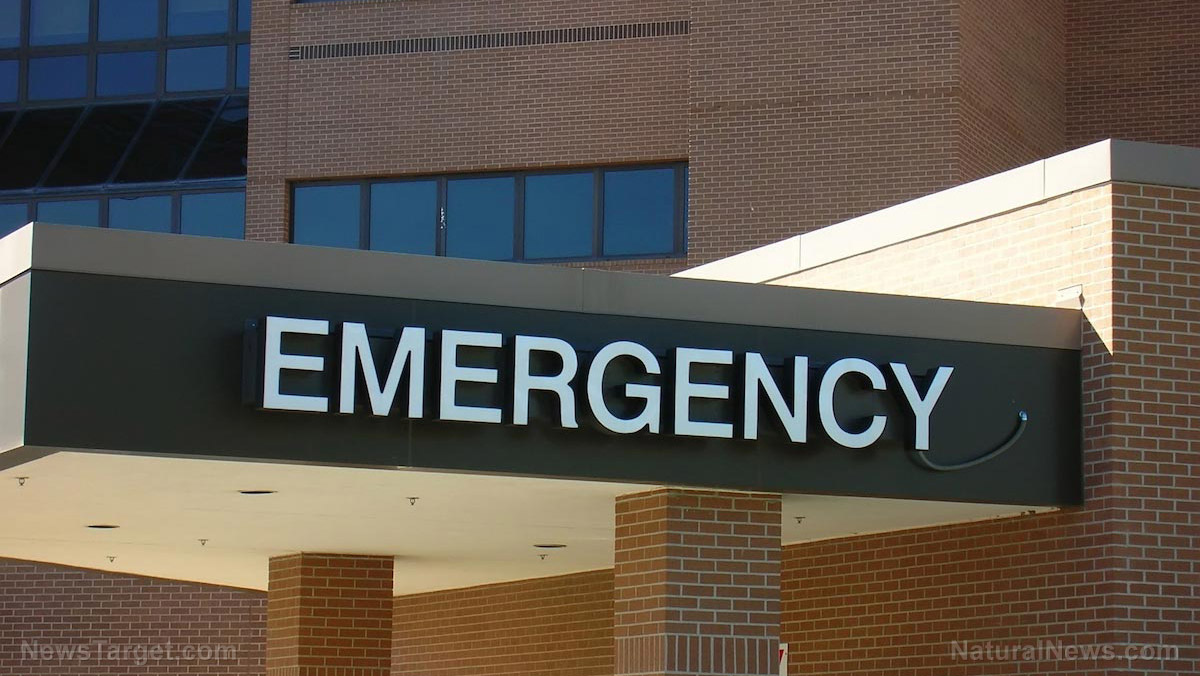Preventable medical mistakes harm one in 20 patients – study
05/17/2020 / By Arsenio Toledo

A recent study by researchers from the University of Manchester has found that nearly one in every 20 patients who receive medical care are exposed to some kind of preventable harm.
The study, published in the journal BMJ, noted that in 12 percent of the cases, the preventable harm was so severe, it resulted in permanent disability or even death.
According to the nonprofit Institute for Healthcare Improvement, medical harm is the unintended physical injury resulting from or contributed to by medical care (including the absence of indicated medical treatment) that requires additional monitoring, treatment or hospitalization, or that results in death.
Researchers examined data from 66 previously published studies that reported 70 independent samples and included a pooled sample of 337,025 patients. In particular, the review looked at studies published within the past 19 years. The team found that over half of the harmful incidents they identified in the sample were, in fact, preventable. (Related: Medical nightmare: Woman left unable to function and in excruciating pain after botched surgery, then has her memories wiped by the pain meds.)
“Our findings affirm that preventable patient harm is a serious problem across medical care settings,” the authors concluded in their report.
The authors also point out that the burden on health systems caused by disabilities and deaths resulting from medical harm is comparable to chronic diseases like cervical cancer and multiple sclerosis in developed countries, or malaria and tuberculosis in developing countries.
Mitigating preventable medical harm a public health concern
A separate study by researchers from Johns Hopkins University revealed that medical errors account for 250,000 deaths each year in the United States. This makes it the third leading cause of death in the country, right after heart disease and cancer.
But other studies have even reported much higher figures, with some saying that actual deaths from medical errors can be as high as 440,000. Public health experts say that the discrepancy occurs as physicians, coroners, medical examiners and funeral directors do not list medical harm and system failures as causes of death.
The researchers believe that a majority of the medical errors that result in deaths are systemic problems. Some of these problems that need to be addressed include poorly coordinated care, fragmented insurance networks and the absence or underuse of safety nets. A lack of accountability for the ways physicians practice medicine may also be a factor.
In the Manchester study, researchers also pointed out that medical errors can also be very costly. Hospitals across the United States spend an extra $9.3 billion each year due to extended hospital stays attributable to medical harm. Furthermore, the length of the excess hospital stays due to medical error amounts to an estimated 2.4 million hospital days.
Fortunately, patients may be able to take back control over what happens to them during hospital visits. The Agency for Healthcare Research and Quality (AHRQ) has listed 20 valuable tips patients can follow to prevent medical errors, which include the following.
- If you are in a hospital, ask health care workers who will touch you if they have washed their hands.
- If you are being discharged from the hospital, ask your primary physician to explain in detail the treatment plan you need to follow at home.
- If you need surgery, make sure that you, your primary physician and your surgeon all agree on what is to be done.
- If you need surgery, have it done in a hospital where many patients have had the procedure before.
- If you have questions and concerns, know that it is your right to ask them.
Medicine.news has more studies on medical care in hospitals.
Sources include:
Tagged Under: bad doctors, harm reduction, harmful medicine, Hospitals, human error, medical error, medical errors, medical harm, medical mistakes, preventable harm, research




















